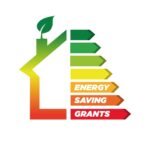As the world moves toward sustainable solutions, solar energy has emerged as a top choice for homeowners and businesses alike. But while the benefits of solar power are clear—lower energy bills, reduced carbon footprint, and increased energy independence—the upfront costs can sometimes be a barrier. Fortunately, solar panel grants provide a financial cushion for those looking to harness the power of the sun. But how do these grants work, and how can you take full advantage of them?
What Are Solar Panel Grants?
Solar panel grants are financial incentives provided by governments, organizations, or institutions to encourage the adoption of renewable energy. These grants aim to reduce the upfront costs of purchasing and installing solar panels, making solar energy accessible to more people.
Grants come in various forms, including direct payments, tax credits, or rebates. They are typically designed to cover part or all of the costs of solar panel installation, making it easier for homeowners and businesses to make the switch to renewable energy.
Why Are Solar Panel Grants Important?
The global push for renewable energy is not just about reducing energy bills—it’s about addressing the climate crisis. Solar energy is one of the most sustainable sources of power, and increasing its adoption is key to reducing greenhouse gas emissions.
However, without financial support, the initial investment in solar panels can be a significant hurdle for many households and businesses. Solar panel grants help bridge the gap, allowing more people to afford the transition and contributing to a cleaner, greener future.
Types of Solar Panel Grants Available
There are various types of solar panel grants and financial incentives available to different groups. Some may be available on a national level, while others may be more localized. Here are the most common types of solar panel grants you can explore:
1. Government Grants
Government-backed solar panel grants are typically the most well-known. Countries like the UK, the US, and Australia have programs to support the adoption of renewable energy. These programs vary but often include subsidies for installation costs, tax incentives, or rebates.
For example, in the UK, the Green Homes Grant was a program that provided financial aid to homeowners making energy-efficient improvements, including solar panel installations. While some programs may have ended, new ones often replace them to continue the push for renewable energy adoption.
2. Tax Credits and Rebates
In many regions, governments provide tax credits or rebates instead of direct grants. A tax credit reduces the amount of taxes you owe, making it more affordable to install solar panels. In the US, for instance, the Federal Solar Investment Tax Credit (ITC) allows homeowners to deduct a significant percentage of their solar installation costs from their taxes.
Similarly, rebates may be offered at the state or local level to further reduce the cost of installing solar panels.
3. Local Authority Grants
In addition to national government schemes, local authorities often offer solar panel grants. These programs are typically more targeted, focusing on specific regions or communities. Local grants can be an excellent option if national programs are not available or fully applicable to your situation.
4. Low-Interest Loans and Financing Options
While not strictly grants, low-interest loans and financing options offered by governments or financial institutions can help offset the upfront costs of solar panel installations. Programs like PACE (Property Assessed Clean Energy) in the US allow homeowners to finance the installation of solar panels and repay the cost over time through their property tax bills.
How to Apply for Solar Panel Grants
Getting started with solar panel grants is easier than you might think. The process typically involves the following steps:
1. Research Available Grants
Before you can apply for any grant, it’s essential to research the programs available in your region. Start by checking government websites or local energy authorities for information on current solar panel grants, tax credits, or rebates. You can also reach out to professional solar installers, as they are often familiar with the latest incentives.
2. Assess Your Eligibility
Each solar panel grant or incentive program will have specific eligibility criteria. These might include factors like the size of your property, energy consumption, and the type of solar panels you intend to install. Ensure that you meet these requirements before applying.
3. Gather Necessary Documents
Most grant applications will require detailed information about your property, solar panel system, and financial situation. Make sure you have all the necessary documents, including proof of ownership, quotes from solar installers, and previous energy bills.
4. Submit the Application
Once you have everything in place, submit your application following the guidelines provided by the grant program. Be mindful of deadlines, and if you’re unsure about any aspect of the application, don’t hesitate to contact the relevant authorities or professionals for guidance.
The Long-Term Benefits of Solar Panel Grants
By taking advantage of solar panel grants, you’re not just lowering your energy costs in the short term—you’re also investing in long-term sustainability. Here’s why applying for these grants can have lasting benefits:
1. Reduced Energy Bills
One of the most immediate benefits of solar panels is a reduction in energy costs. Depending on the size of your system and the amount of sunlight your location receives, you could significantly lower your monthly energy expenses—or even eliminate them.
2. Increased Property Value
Installing solar panels can increase the value of your home. As energy efficiency becomes a priority for homebuyers, properties equipped with solar systems tend to be more attractive in the market. Some studies suggest that homes with solar panels can sell for up to 4% more than those without.
3. Environmental Impact
Switching to solar energy reduces your carbon footprint and helps fight climate change. By utilizing the sun’s power, you’re contributing to a cleaner planet and a more sustainable future for generations to come.
4. Energy Independence
Solar panels give you more control over your energy usage. Instead of relying solely on the grid, you can generate your electricity, protecting yourself from future energy price hikes and supply issues.
Challenges and Considerations
While solar panel grants can make the transition to renewable energy more affordable, there are a few challenges to be aware of:
- Availability of Grants: Not all grant programs are available year-round, and funding may run out quickly, especially for popular schemes.
- Upfront Costs: Even with grants or tax incentives, there may still be some upfront costs associated with the installation. It’s essential to budget accordingly.
- Ongoing Maintenance: Solar panels require minimal maintenance, but it’s important to monitor their performance and clean them periodically to ensure they’re functioning optimally.
Final Thoughts: Is Solar Worth It?
The answer is a resounding yes. With solar panel grants and financial incentives available, there’s never been a better time to make the switch to renewable energy. By lowering the initial cost of installation, these programs make solar energy accessible to more people, helping reduce reliance on non-renewable energy sources and contributing to a cleaner future.
Now that you have the information, it’s time to act. Research the solar panel grants available in your area, apply for the one that suits your needs, and take the first step toward a more sustainable lifestyle.
Energy Saving Grants is your trusted partner for accessing government energy saving grants designed to enhance the energy efficiency of homes across England, Scotland, and Wales. Specializing in energy efficiency grants, they assist homeowners, tenants, and landlords in securing grants for energy efficiency measures such as solar panels, insulation, and heating systems. Their expertise covers a range of schemes including the ECO, LA Flex, and the Great British Insulation Scheme. With quick decisions, Trustmark approved installers, and free expert advice, Energy Saving Grants simplifies the application process for government grants for energy efficiency, helping reduce energy bills and carbon footprints.





















































